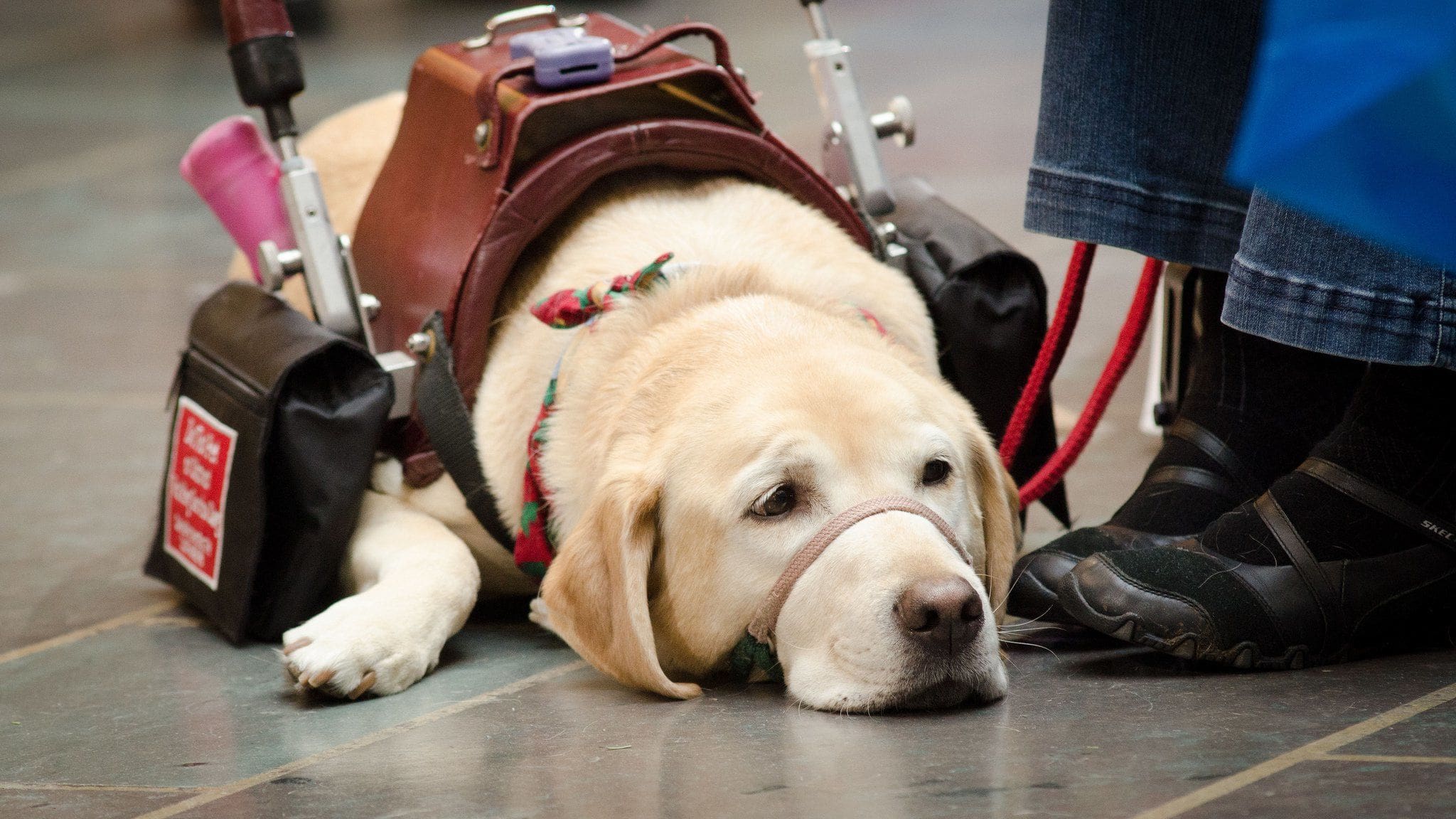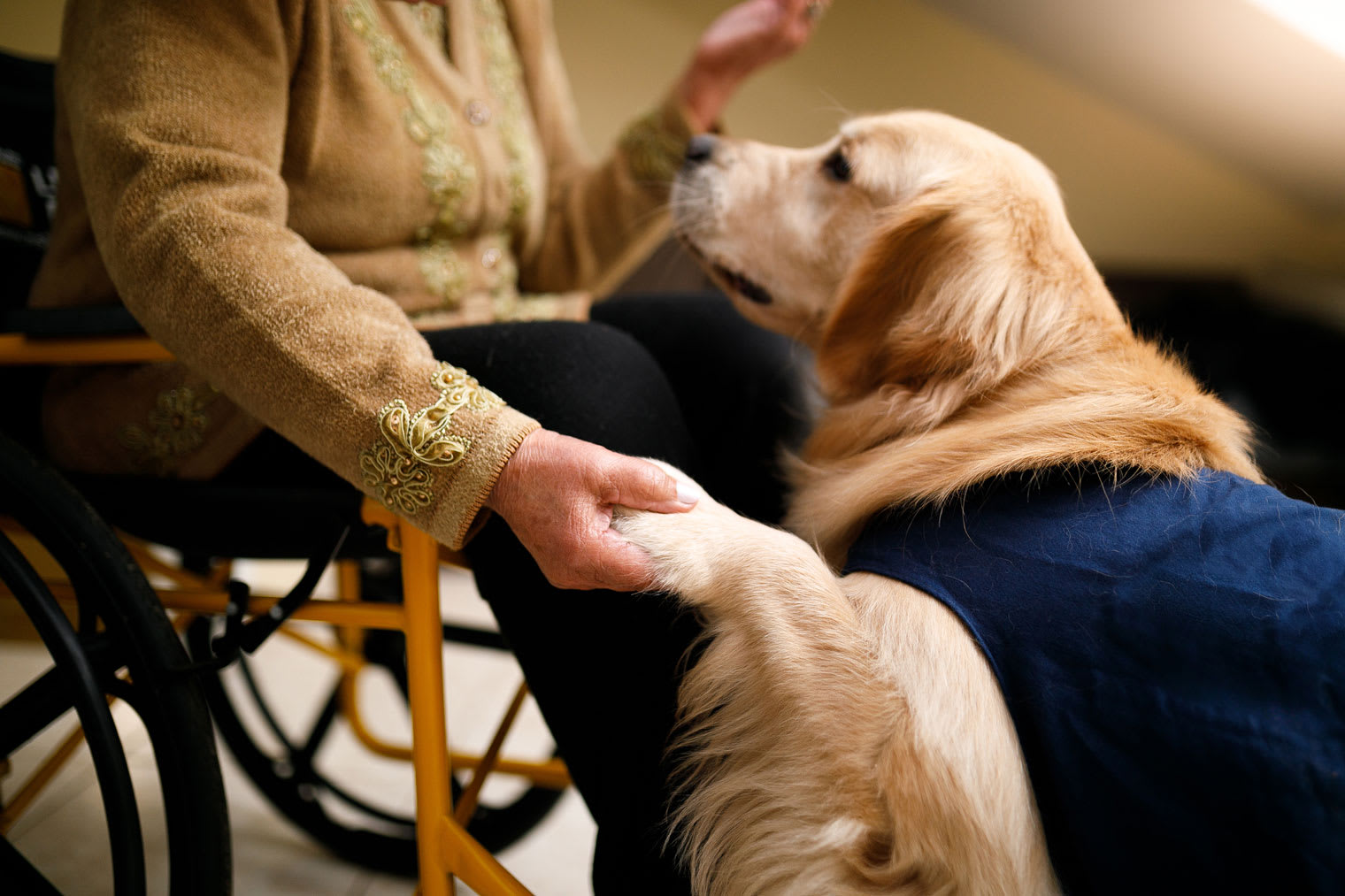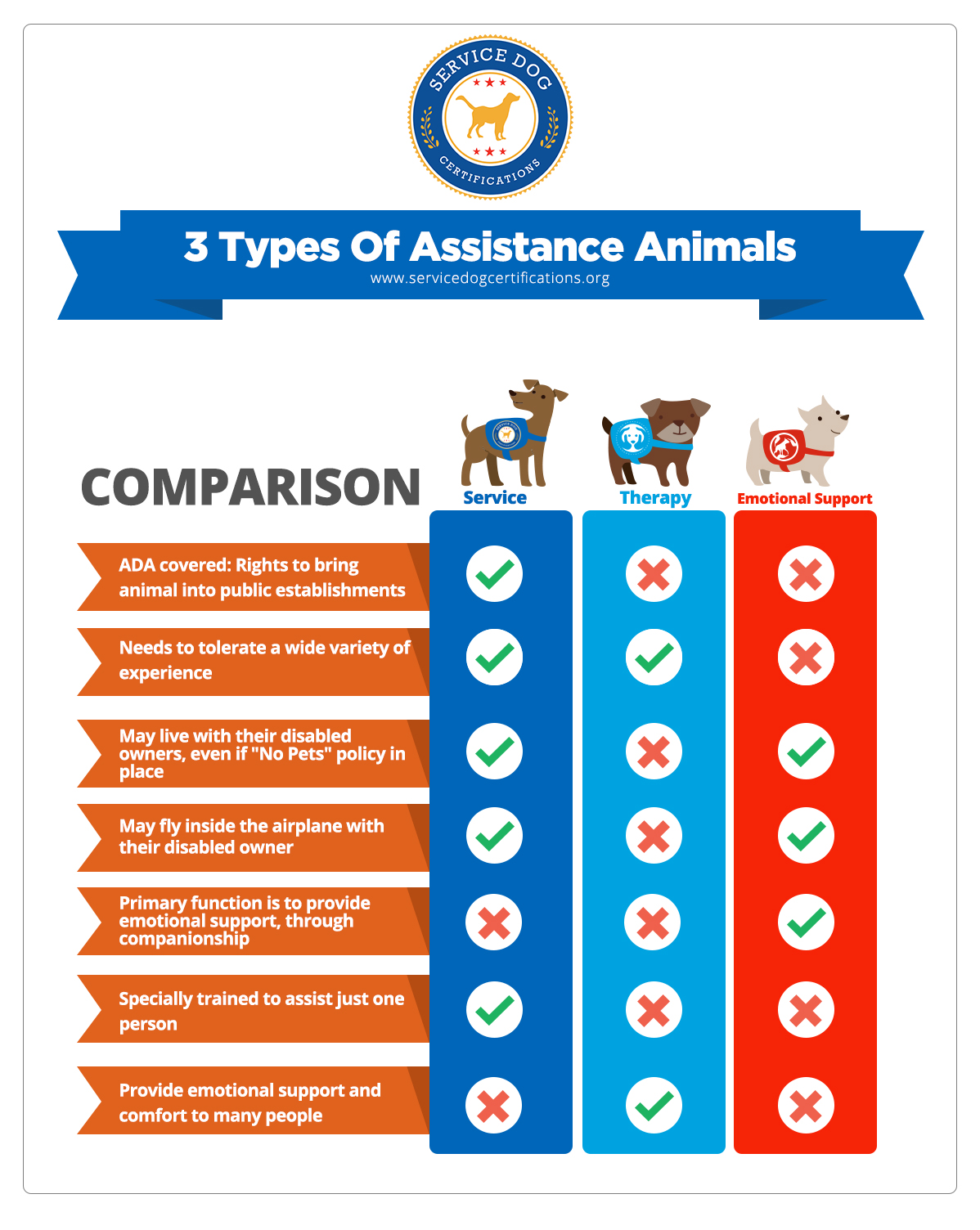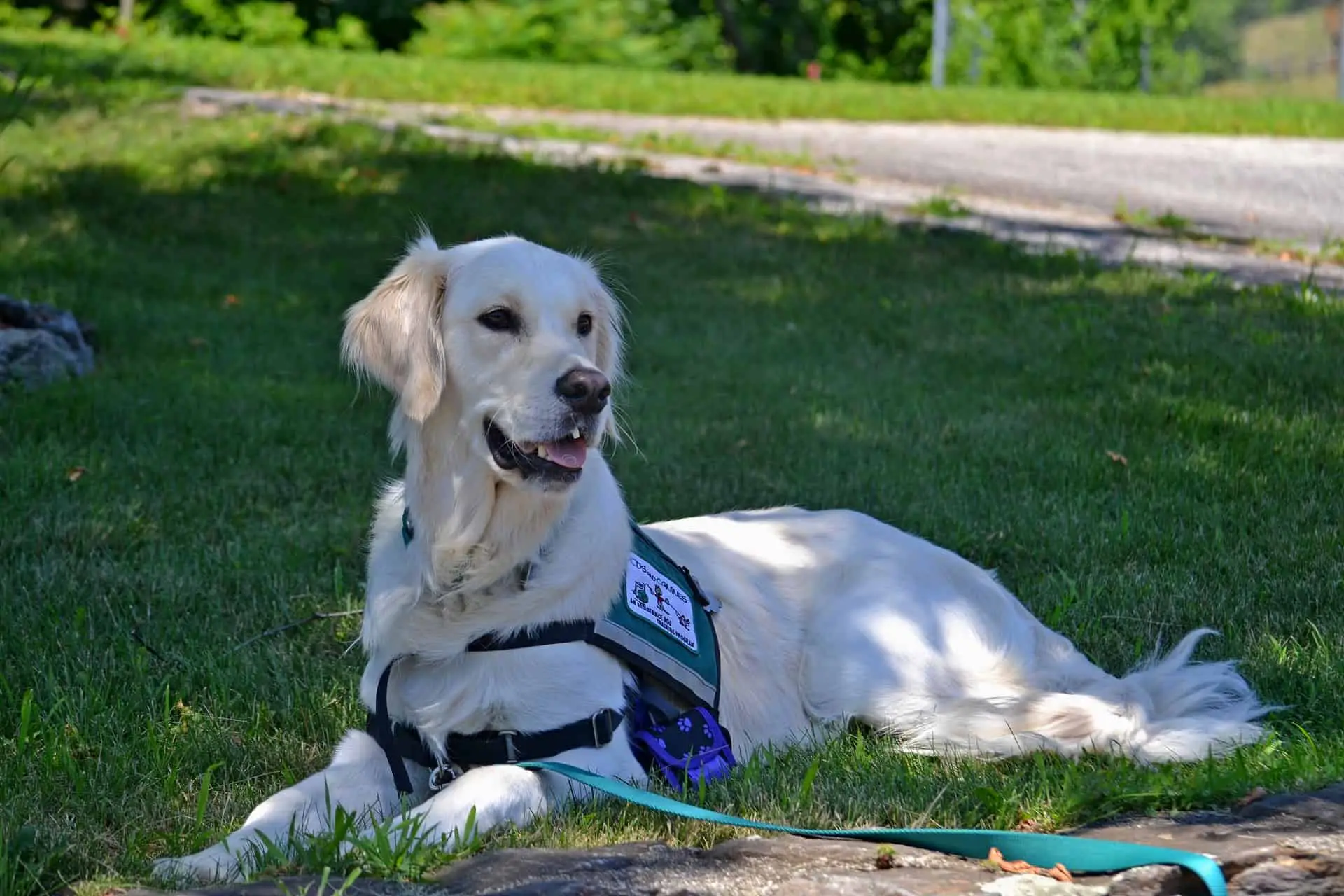Service Animals And Emotional Support Animals In Victim Services

There are differences in the processes required and in the accommodations provided to individuals with identified disabilities supported by Service Animals and Emotional Support Animals.
Service animals and emotional support animals in victim services. Emotional support animals ESA are not service animals. Service Animals in Training. The federal Fair Housing Act requires housing facilities to allow service dogs and emotional support animals if necessary for a person with a disability to have an equal opportunity to use and enjoy the home.
Service Animals and Emotional Support Animals as defined under the Fair Housing Act. On August 21 2019 at 200 pm. Emotional support animals may be almost any species and are essentially untrained pets.
How They Are Different and What You Should Know By. Service animals and emotional support animals might have access to buildings and vehicles where animals are normally excluded. Transportation and services that others take for granted.
ESAs are afforded protections under the Fair Housing Act FHA only. These differences are explained in the separate sections of this documents. Some ESAs are.
Entities may only ask if the service animal is needed for a disability and if the animal has been trained to perform a specific task. Introduction Individuals with disabilities may use service animals and emotional support animals for a variety of reasons. The ADA makes a distinction between psychiatric service animals and emotional support animals.
With a limited exception for miniature horses a service animal can. Service animals in training are permitted in all public facilities on the same basis as working service animals provided that the dog is on a leash and is being led or accompanied by a trainer for the purpose of training the dog and the trainer has documentation confirming the trainer is affiliated with a recognized or certified service dog training organization. Emotional support animals are not required to be trained to perform a specific job or task and therefore they do not qualify as Service Animals under the Americans with Disabilities Act.



















